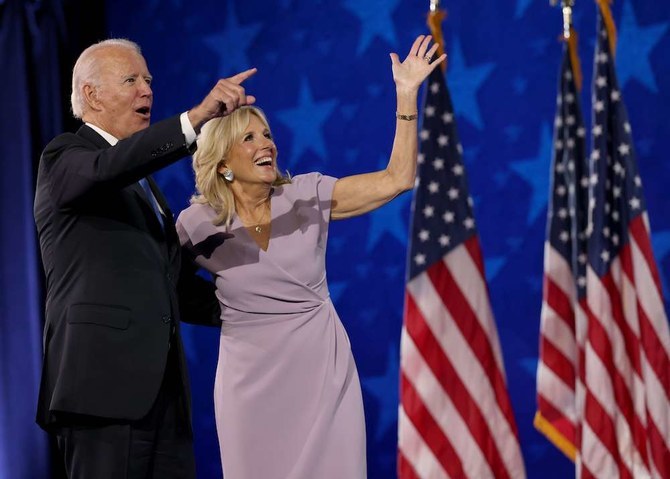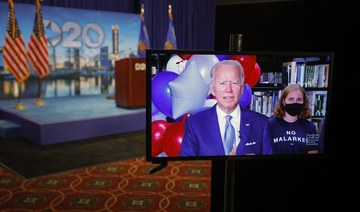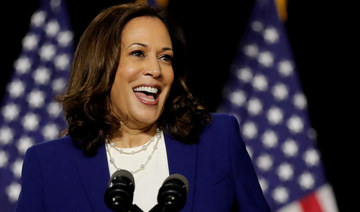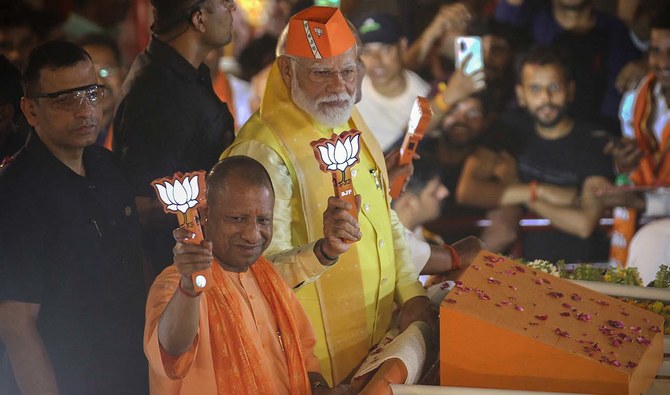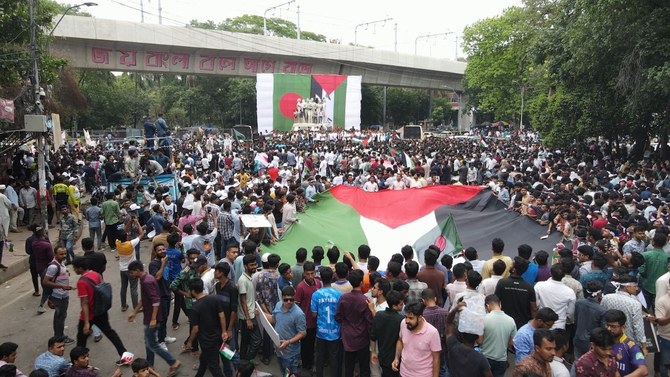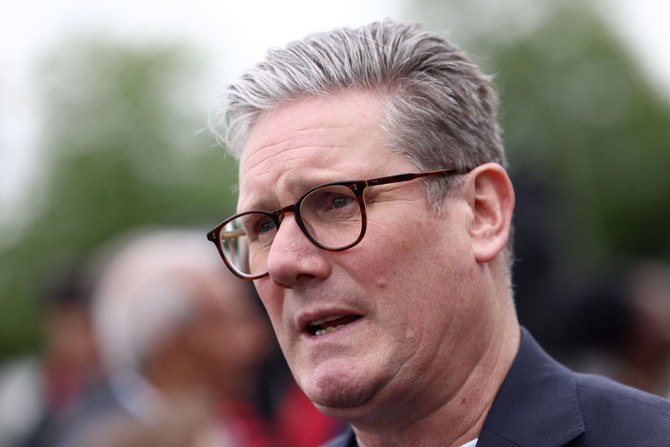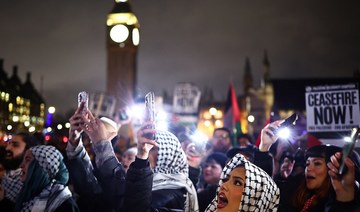NEW YORK: It was a speech that Joe Biden had longed to deliver since he first ran for president 28 years ago. Accepting the Democratic presidential nomination, he vowed to be “an ally of the light and not the darkness.”
At a convention presumed to be about the ideological chasm between the party’s progressives and its center-left wing, he cast himself as a president for all Americans, uniquely positioned to heal, reform and unite the country against what he called President Donald Trump’s divisive path.
“This is a contest for the soul of the nation,” he told voters. “(The) choice could not be more clear. Just judge this president on the facts.”
His speech came at the end of a four-day, all-virtual convention. Party leaders and voters dominated primetime airwaves as they sought to put forward a cohesive vision of Democrats’ core values and policies, from the threat posed by climate change and gun laws - which particularly resonate with young voters - to healthcare, immigration, and racial justice.
The coronavirus pandemic forced the Democrats to sacrifice the traditional convention format and its usual trappings of lively arenas and balloons for the sake of public health and safety.
Millions watched at home on TV or computer screens. Some hosted Zoom watch parties. Democrats also set up drive-in viewing stations, where supporters could watch the speech from their cars.
Biden’s personal character and story, especially the death of his son Beau, were amplified at the convention. Voices from across the Democratic spectrum came together to portray the 77-year-old candidate as a decent, compassionate man of faith, a practicing Catholic, the vice president who lost his son to cancer, and the schoolboy with a severe stutter.
While they scoffed at Trump back in 2016, the Democrats are now portraying him as an existential threat, condemning his immigration and climate policies.
Flanked only by US flags, Biden spoke directly into the camera as a handful of aides, family and media looked on.
He blasted the president’s handling of the pandemic and its economic fallout. “The tragedy of where we are today is it didn’t have to be this bad, (with) minorities bearing the brunt of it. Our current president failed at his basic duty: He didn’t protect us.”
He vowed to handle such crises “so we will never again be at the mercy of China” to protect people.
“We’re gonna do more than praise our essential workers. We’re going to finally pay them. I am not looking to punish anybody. Far from it. But it is time for the wealthy (to) pay their shares. We’re going to protect social security and Medicare. You have my word.”
Hours ahead of the speech, Trump, who had been mocking his rival for “hiding in his basement,” appeared in Biden’s childhood hometown of Scranton, Pennsylvania, where he depicted the nominee as having abandoned the working class.
Biden’s speech came at what he termed an “inflection point” in US history with “the most compelling call for racial justice since the 60s,” following the killing of George Floyd, which sparked protests across all states demanding the end of systemic racism.
Of his vice presidential pick Kamala Harris, who made history as the first black woman on the national political ticket, he said she was a “powerful voice” and that she had overcome every obstacle she had ever faced.
During her speech, Harris, a 55-year-old California senator and the daughter of Jamaican and Indian immigrants, addressed race and equality. “There is no vaccine for racism,” she said. “We’ve got to do the work to fulfill the promise of equal justice under law. None of us are free until all of us are free.”
On foreign policy, referring to the alleged Russian interference in the 2016 elections, Biden announced that “the days of cozying up to dictators” was over. He said he would return to working with the country's allies for a more secure, peaceful and prosperous world.
Just 75 days before the election, he is relying on the energy of the modern Democratic coalition that spans generation, race and ideology.
Former President Barack Obama pleaded with voters to “embrace” their responsibility as citizens and to ensure that the basic tenets of US democracy endured.
“Because that’s what is at stake right now. Our democracy,” Obama said during his speech from Philadelphia’s Museum of the American Revolution. “Trump hasn’t grown into the job because he can’t. And the consequences of that failure are severe. 170,000 Americans dead. Millions of jobs gone. Our worst impulses unleashed, our proud reputation around the world badly diminished, and our democratic institutions threatened like never before.”
Throughout the convention, the Democrats hammered home the message to vote.
Hillary Clinton, Trump’s rival in 2016 and the first woman to be nominated for president, urged Democrats to turn out in “overwhelming” numbers.
“For four years, people have said to me: ‘I didn’t realize how dangerous he was,’ ‘I wish I could go back and do it over,’ or ‘I should have voted,’” she said. “Well, this can’t be another woulda coulda shoulda election. Vote like our lives and livelihoods are on the line, because they are.”
This November, voters must deal with concerns over health risks posed by the pandemic for those who want to vote in person, and a slow postal service for mail-in ballots, which Democrats blame on Trump.
The Republican convention will take place next week. Other than Trump delivering his nomination acceptance speech at the White House, planners have kept their format under wraps.



